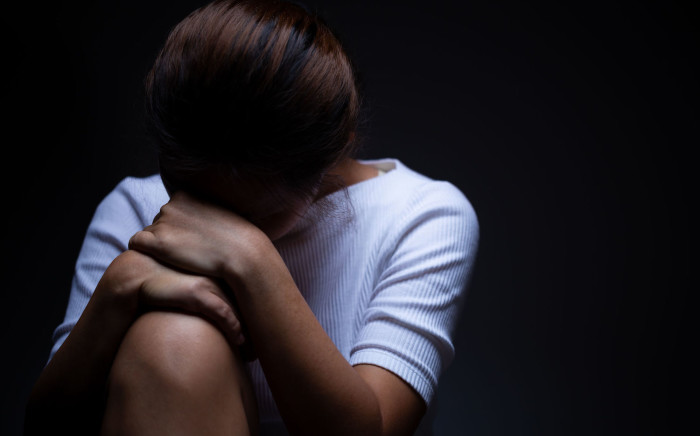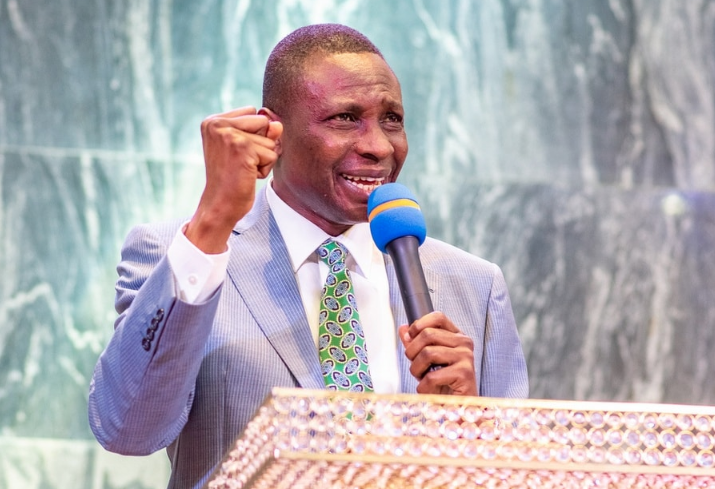BY OYOFO AHMED SULE
That sexual and gender-based violence has assumed a frightening proportion is an understatement and should be stopped forthwith. Women are not punching bags; they are mothers! Children, on their own, are bundles of joy to any family household, so they should not be subjected to any form of trauma or maltreatment. Rather, they deserve maximum protection. It is therefore distressing to read or hear of any form of violence unleashed against them especially as they are defenceless.
However, the good news is that there is a flurry of activities involving national and international organisations to tackle the issue. These renewed efforts have attracted Nigeria’s First Lady, Senator (Mrs.) Oluremi Tinubu, with her Hope Renewed Initiative to confront and conquer this demon. She declared in a recent town hall meeting held at the Lagos Central Senatorial District: “My advice is that women, who are fortunate to rise to a position of power, influence or wealth must invest such in the commonwealth of women. Rather than join the ‘men’s club’ they must reach out and pull other women along. From the girl child to that young struggling graduate, that lady professional in between jobs, that woman who has to juggle domestic and professional duties and the women out there who badly need just one opportunity to prove that she is capable, truly need our help. In little or big doses, it does not matter, just do it. Because out there, women who can and will succeed on merit if given the chance”.
Prince Lateef Fagbemi, SAN, the attorney general of the federation and minister of justice, is also not left out; he gave a flicker of hope by setting up a flurry of activities in that direction. The two like minds met recently and there is no doubt that areas of support and collaboration will take the front burner.
Advertisement
What is particular is that the menace has assumed a monstrous proportion and should be stopped forthwith. Nothing will satisfy social and political observers more than seeing the implementation of the set of brilliant ideas that are expected to eradicate crime within the shortest possible time. Anything that will signal the end of the road for perpetrators and redress for identified victims is welcomed.
This is like a reawakening of our collective consciousness and a wake-up call for everyone not only to align with this renewed initiative but to contribute in any way possible to make the programme, one of resounding success. At this point, it is important to expatiate the meaning of SGBV to grasp the true picture of what we are trying to explain. SGBV is the acronym for Sexual and Gender-Based Violence against women, children and in some cases, men. It is violence committed against a person because of his or her sex or gender. It is forcing another person to do something against his or her will, through violence, coercion, threats, deception, cultural expectation or economic means.
Although a majority of the victims and survivors are women, girls and boys, men have been known to be also affected. All forms of sexual and gender-based violence including domestic violence, forced marriages, child marriage, physical violence, rape, molestation, genital mutilation, sexual harassment, intimate partner violence, teenage pregnancy, incest, forced abortion and stalking, violate fundamental human rights. In addition, intentional bodily injury, slapping, punching, choking, kicking, shoving, inappropriately using drugs or physical restraints denying medical care, forcing alcohol and or drug use, including forced prostitution are not left out. Some of the identified causes have been traced to poverty, breakdown of services, conflicts and wars, displacement, and stress at home especially the days of tension induced by financial pressures.
Advertisement
Some men have been known to raise their voices and sometimes flip over in times of acute financial difficulties; inability to meet up with intended expenses, increased debts and even unexpected dismissal from employment. In such cases, tempers boil over and may result in an exchange of blows with spouses at home. There are stories of husbands and wives exchanging blows in broad daylight and even dragging themselves to the public domain. Such is the magnitude of fury that can grip uncontrolled rage in most households!
Truly, when faced with no escape route at home in demanding situations, men could become assailants and do the unthinkable. But then, these are isolated cases; according to the International Labor Organization, the orientation of a culture or the shared belief within a sub-culture helps define the limits of tolerable behaviour. Social norms about the proper roles of each gender, the man is perceived as aggressive, powerful, unemotional, and accepted as dominant; while women are perceived as passive, nurturing, submissive, emotionally weak and powerless. This socialisation has resulted in an unequal power relationship. Most cultures do not tolerate women responding when men, perceived as the breadwinners are talking; they consider that as an affront and unfortunately may degenerate into an exchange of fiery blows!
Recently videos have circulated of some men beating their wives to pulp and some rape incidences involving underage. You even hear of what is called “gang-rape” which often results in murder. Add that to the increasing cases of child forced marriages with distressing footage of some of the victims trying to escape, then you will understand why the initiative of the First Lady and the SGBV Unit of the Federal Ministry of Justice should be gabbed with multiple hands, legs and what have you! In case you do not know, this is a global pandemic that affects women in their lifetime. The numbers are staggering, while 35% of women are known to have experienced either physical or sexual intimate partner violence or the reverse, the most serious cases involving murders of women are also committed by intimate partners.
One characteristic of gender-based violence is that it knows no social or economic boundaries and affects women and girls from all socio-economic backgrounds. The issue needs to be addressed in both developing and developed countries. The consequences can be devastating to the victims.
They include partial or permanent disability; poor nutrition, exacerbation of chronic illness, and chronic pain. Anger, anxiety, fear, shame, self-hate, self-blame, post-traumatic stress disorder such as nightmares, distressing thoughts. In some cases, it results in HIV/AIDS and other sexually transmitted diseases. Anita Guerrero from Nicaragua says “It is frightening to think that you may not get home alive one day as a result of sexual violence”. Oxfam Worldwide has launched the ‘Enough campaign to end violence against women and girls’ by bringing people of all genders, ages and backgrounds together to transform the normal; it aims to challenge and change the harmful social norm that justifies abuse to one that promotes gender equality and non-violence saying “let’s stop thinking it is normal; every day, everywhere, all over the world, women and girls face violence; this can be changed; enough to violence against women and girls”. This is exactly what the First Lady, through her Renewed Hope Initiative has set out to do.
Advertisement
On October 6, 2023, the First Lady put rhetoric aside and launched this programme to support women, children and youths in the country at the State House. The programme is targeted at vulnerable groups and primed to bring them closer to governance. The First Lady disclosed during the launching that the aim was to bring succour and relief to families when fully operational across the 36 states of the federation and FCT, meaning that better times are here for women!
It is expected that when fully operational, the Hope Renewed Initiative amongst others undertake full-scale recovery and rehabilitation programmes such as campaigns to raise awareness, promote women’s empowerment, challenge gender stereotypes, educate men and women on non-violence and equality topics as well and carry out rehabilitation programmes for perpetrators and victims. They will go a step further by encouraging legislation and enforcement of substances, and the mandatory adoption of safe and healthy habits. The Hope Renewed Initiative can also leverage on community-based multi-pronged approach and sustained engagement with multiple stakeholders including civil society organisations and NGOs.
They can address the underlying risk factor for violence which includes social norms regarding the roles and acceptability of violence. Through investment, research, learning and collaboration with relevant stakeholders around the world, the Initiative will certainly go a long way towards reducing sexual and gender-based violence. And why not? Nigeria is a signatory to the Universal Declaration of Human Rights(UNHR) and the Charter of African Human Rights(AHRC) both of which aim to protect individuals against violence and other actions that interfere with fundamental freedom and human dignity. The 1999 constitution of the Federal Republic of Nigeria recognises entrenched human rights as fundamental in Chapter Four. It is categorically stated in chapter two of the constitution that the Nigerian state’s social order is founded on the ideals of freedom, equality and justice and that discrimination on the grounds of sex, religion and ethnic ties amongst others is prohibited.
Potential social responses to gender-based violence are most effective when there is a common understanding of the nature and causes of the crime, and is addressed from all angles through the participation of multiple sectors in the country. Luckily, the Sexual and Gender-Based Violence Response Unit of the Federal Ministry of Justice is extremely reliable at this juncture. The HAGF undertook the task of coordinating government actions, laws and policies in response to SGBV cases in Nigeria through the establishment of the SGBV Response Unit in May 2021, headed by Barrister Yewande Gbola Awopetu. This unit has the following mandate: to review and harmonise laws and policies on SGBV; provide access to justice for SGBV victims, and survivors, through counselling, mediation, facilitation of settlement agreements and provision of all required legal services for victims. It is also to undertake capacity building and training for all legal officers handling SGBV cases. Establishment of prosecution hubs, collation and processing of SGBV data records, reporting, monitoring and evaluation purposes.
Advertisement
Together with the Hope Renewed scheme, they can mount a sustainable fight against the malaise by organising capacity-building for judges and relevant stakeholders. Once they can effectively promote the rule of law, access to justice, and enhance the criminal pathway to addressing violence against women and girls, then must their efforts be deemed successful. This is arguably not the time for sentiments and lip services; anyone caught in the act must be punished. In fact, it is horrifying that of 24,720 cases reported, only 306 have been prosecuted; others appear to have been forgotten or swept under the carpet! Even now, of the 975 fatal rape cases made known to the public, there is little or no justice for the victims. So, one of the first tasks of the Renewed Hope Initiative and the SGBV Unit of the Ministry of Justice is to create mobile courts hurriedly across the country for speedy prosecution of anyone caught in gender-based violence. Both government organs must coordinate their efforts to improve conditions of service for Judiciary officers and the Nigerian police; and address the shortage of manpower in the judicial and empowerment agencies.
As an extra boost, women should be given special consideration during recruitment into the force to improve gender balance and then in line with international standards, they should be equipped with modern gadgets and should be well trained; more women empowerment programmes should be put in place and adequately funded, encourage collaboration with civil societies, non-governmental organizations, as well as members of the public to report cases instantly once they occur. They should also encourage workshops, and seminars in both urban and rural areas, carry out sensitisation campaigns and widen the same in all 36 states of the federation.
Advertisement
They should not neglect the need for more studies in this area to discover more about the root causes of this malaise. At this point, the Hope Renewed Initiative and the SGBV Unit of the Ministry of Justice are encouraged to work and collaborate with established liberation institutions like the Women At Risk International Foundation (WARIF), the IGP Gender Desk of the Nigeria Police, encourage the speedy designation Special Courts for trial of SGBV cases and development and signing of the Practice Direction and Guideline on trial of SGBV cases and auxiliary procedure’ under the Violence Against Persons (Prohibition) Act. They should also give consideration to the innovative use of social media as a transformation tool to change behaviour.
Having examined thus far, the question now is: should the nation applaud the Hope Renewed Initiative and the SGBV Unit of the Federal Ministry of Justice? At least for taking the initiative, the answer seems to be yes; they have to be encouraged to focus and not lose concentration so that the poor victims out there and many others are given a sense of belonging. SGBV victims especially women and girls deserve all the assistance the government can offer them. That is a step in the right direction.
Advertisement
Sule, a public affairs analyst, writes from Abuja. He can be reached via 08054260241.
Advertisement
Views expressed by contributors are strictly personal and not of TheCable.
Add a comment






